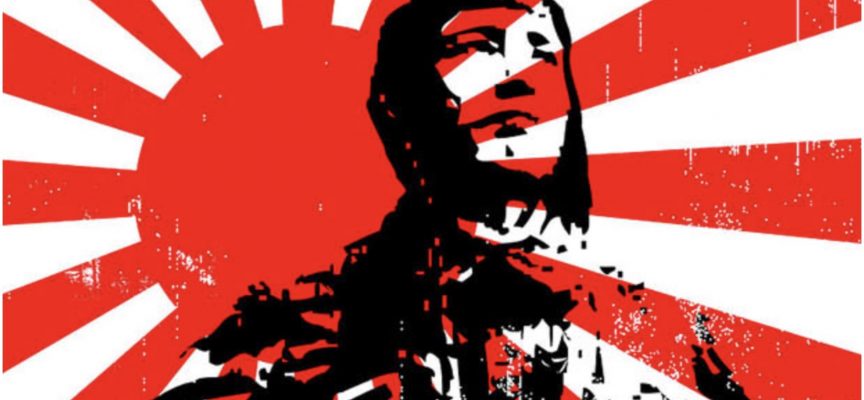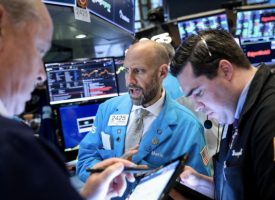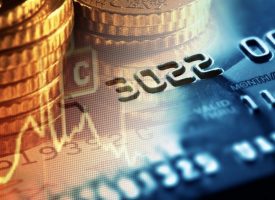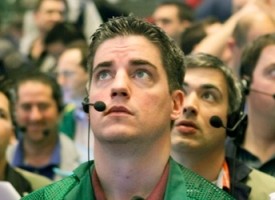On the heels of markets across the globe surging, Peter Boockvar warns this madness is about to be unleashed on the world.
Here is what Peter Boockvar wrote today as the world awaits the next round of monetary madness: When I read that Ben Bernanke was flying his helicopter over to Japan I can only think to myself that Keynes just won’t die. Fiscal stimulus spending in Japan has been ongoing since 1990. As for Abe, he took office in late 2012 and his first fiscal spending package began the next year and totaled 20T yen (about $200b) and was mostly spent on bridges, tunnels, etc… Another packaged of about 6T yen came in April 2014 and then another 3.5T in December 2014 via giving out coupons to buy merchandise, more infrastructure spending, helping low income households with money to buy fuel, helping small businesses get funding, etc… In 2015, Abe started directly handing out money. The government gave 30k yen (about $300) in cash to each of the elderly poor, about 1mm of them. He also raised the minimum wage. As they also want more kids, he started building public child care facilities and for the elderly, more nursing homes. And back in May of this year, Abe proposed a 10T yen stimulus package for high speed rail, giving out more vouchers for spending, etc…
 More Monetary Madness And A Major Inflection Point
More Monetary Madness And A Major Inflection Point
Thus, the talk of ANOTHER fiscal stimulus plan is MORE OF THE SAME and when it ends Japan will be back in the same soup but with some nicer roads and rails. Japanese fiscal stimulus packages have had more sequels than Police Academy. If more cash handouts also occur, just think ‘tax rebates, cash for clunkers, and home buying tax credits.’ Thus, helicopter money is just another form of the same Keynesian spending that ALWAYS has an expiration date. Only Ben Bernanke and the current crop of central bankers and government officials think this outcome will be different.
Regardless of how this plays out, the desire for another attempt at reflation has to beg the question of whether we’ve seen an end for now in the global drop in interest rates. The US 10 yr yield in particular is up 12 bps in just the past two trading days and most global sovereign bonds are weaker with yields higher.
As a student of the markets and history, I try to learn as much as I can about what has happened in the past and I also try my best not to forget these lessons. I’m sure the same can be said for everyone reading this. I say this today because the buying of securities, both bonds and stocks, for the sole reason of its yield (or lack thereof) has taken on a new heightened panic post the UK vote. I want to specifically talk about the chase for stocks in light of what has happened in global interest rates. I want to emphasize the price chasing as I don’t believe there is a fundamental economic/earnings improvement giving cause to the rise (a job growth slowdown to just 150k is not an improvement).
I want to remind people that between January 2001 and November 2002, the fed funds rate fell from 6.5% to 1.75% (on its way to 1%) and the S&P 500 fell 40% during this rate cutting cycle and we know ended up 50% in the hole before all was said and done. From January 2000 to October 2002 the 10 yr yield fell from 6.79% to 3.60%. The decline in earnings of course overpowered the lower discount rate that many used to price those future cash flows. Also we know valuations got crushed notwithstanding the decline in interest rates. This brutal episode was repeated in late 2007 through 2008 as a 500 bps rate cutting cycle to zero and a drop in the 10 yr yield from 5.30% to 2% didn’t stop another 50%+ decline in equities. There was an alternative in both those times.
 Be Careful
Be Careful
My point here is not to say we are the cusp of something similar again and I’m not drawing a line in the sand here either with respect to the current level of the market. My point is to say that if one is buying stocks in companies with declining earnings and high valuations only because interest rates keep falling, be careful and don’t forget these recent bouts of history.
The NFIB small business optimism index in June rose to 94.5 from 93.8 in May. The is the best level since December after the weak readings seen so far this year but remains below the 2015 average of 96.1. The components were mixed. Those that Plan to Hire fell 1 pt but those that plan Increased Capital Spending was up by 3 pts. Those that Plan to Increase Inventory fell 2 pts but those that Expect a Better Economy was up by 4 pts. Those that Expect Higher Sales rose 1 pt but those that said it’s a Good Time To Expand fell by 1 pt. Compensation plans were lower.
The NFIB Chief Economist bottom lined the report by saying “Small business optimism did not go down, which is good, but small businesses are in maintenance mode experiencing little growth. Uncertainty is high, expectations for better business conditions are low, and future business investments look weak. Our data indicate that there will be no surge from the small business sector anytime soon and prospects for economic growth are cloudy at best.” Caveat: Bill Dunkelberg is rarely a cheerful guy in print.
***KWN has now released the extraordinary audio interview discussing the gold and silver markets, threat of the robots and much more with Jeffrey Saut and you can access it by CLICKING HERE OR ON THE IMAGE BELOW.
***Also Just Released: Gerald Celente – We Are About To Witness One Of The Biggest Gambles In World History Click Here.
***KWN has now released the timely powerful audio interview discussing the gold and silver markets with Rick Rule and you can access it by CLICKING HERE OR ON THE IMAGE BELOW.
 © 2016 by King World News®. All Rights Reserved. This material may not be published, broadcast, rewritten, or redistributed. However, linking directly to the articles is permitted and encouraged.
© 2016 by King World News®. All Rights Reserved. This material may not be published, broadcast, rewritten, or redistributed. However, linking directly to the articles is permitted and encouraged.








